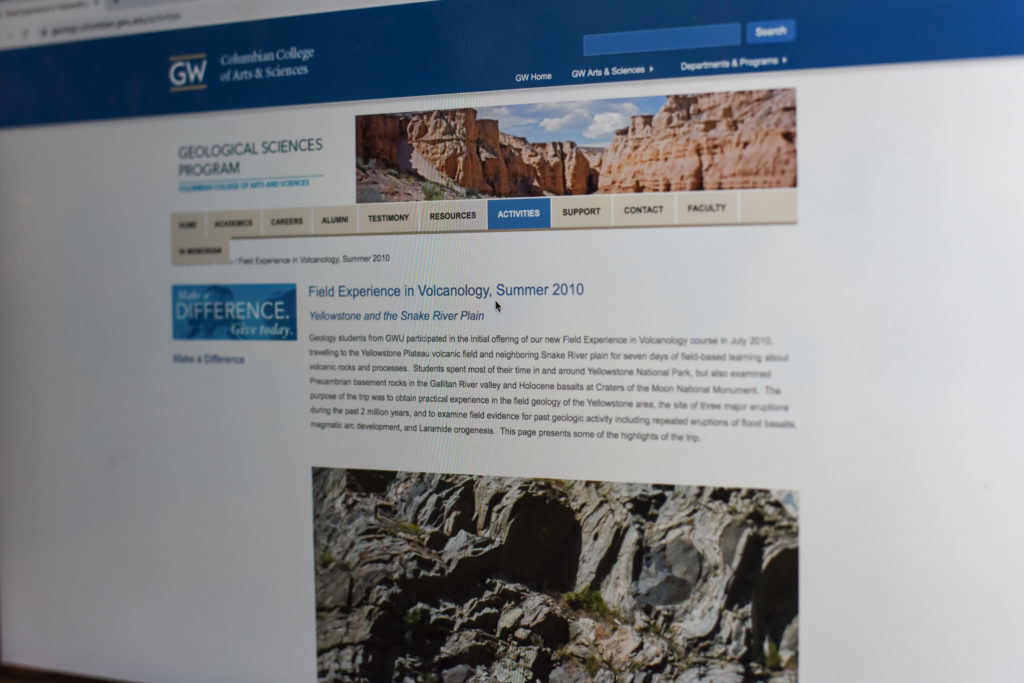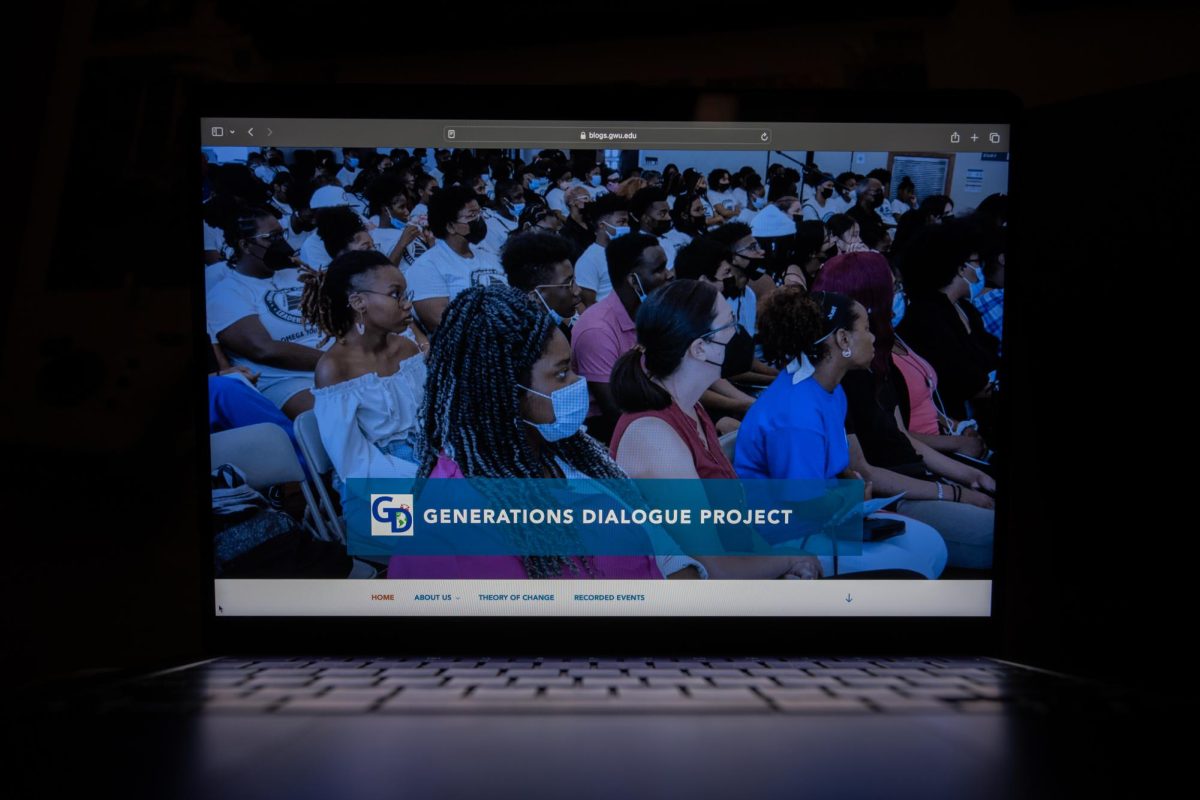Students looking for their academic department’s recent news and events listings may find themselves out of luck.
The Hatchet reviewed the websites of more than 100 academic departments and programs across GW’s 10 schools and found that more than 65 percent of web pages lack information about any department news or events from the last year, feature news articles at least five years old or do not offer any news at all. Experts said the prevalence of outdated information on GW websites is “concerning” because it could mislead current and future students about GW’s academics.
“If it extends across multiple schools and colleges at your university, then that suggests it’s a campus-wide problem, which pushes it up to the realm of the provost,” said Noel Radomski, the managing director of the Wisconsin Center for the Advancement of Postsecondary Education at the University of Wisconsin-Madison.
Few recent updates
Fifty academic department and program websites out of 102 – almost half – do not have any news or events from 2019 posted online.
In the School of Medicine and Health Sciences, the ophthalmology department website’s “Presentations & Articles” tab includes an April 2014 agenda from a research meeting. The pathology department website’s “Events Archive” tab does not include events past July 2014, and the site’s news archive includes a single announcement from June 2016.
On the art therapy program’s website, the news tab includes the program’s newsletter from the past academic year but contains a gap in records from 2015 to 2018. In sections for posting articles and videos related to art therapy and the program, the most recent entries are from 2015.
Ingrid Valdes, the administrative manager for the art therapy program, said she updates the art therapy program’s website about once per month when there are changes to the program or new workshops being offered.
“The more information a web page has for incoming students, the better decisions they can make on the different programs, the different universities,” Valdes said.
Valdes said that while the information on a university’s main website contributes more to most students’ college decisions than department pages, information specifically about a department or special program like art therapy can only be found on the department website.
“For prospective decisions for a program like ours that has prerequisites and requires a lot of things for admission, the more updated the page is, the more information they can get and make a better decision on where to apply,” she said.
On the website for the Geological Sciences Program, one of the tabs leads to an obituary for a professor who died almost 10 years ago. Another tab highlights program “activities,” but the most recent entry listed was a visit to Yellowstone National Park in summer 2010.
The Department of Romance, German and Slavic Languages and Literatures includes the spring 2019 department newsletter online, but the news tabs on the Italian, Portuguese, Russian and Spanish programs’ websites tell viewers to “stay tuned” for news.
Cary Nelson, a professor emeritus of English and Jewish culture and society at the University of Illinois, said it is common for department websites to be a few months out-of-date because continuously updating websites is time-consuming and sometimes impractical.
He said updating a website about once per year is a “reasonable goal” but added that as the software behind department websites becomes easier to operate, staff members should update websites more frequently.
“As websites tend to be more user-friendly in the past few years, faculty could update them on their own,” Nelson said.
Old information remaining
Many department websites across all schools contain information compiled years ago that is either no longer accurate or no longer relevant to the department in 2019.
The Department of Anthropology’s website features several profiles of research and student activity from at least five years ago. The “Graduate Programs” tab only lists a study conducted in 2011, the “Internships & Independent Research” tab highlights a study conducted in 2009 and the “Museum Training Concentration” tab features a news story from 2010 about the expansion of a partnership between GW and the Smithsonian Institute.
The Africana Studies Program’s website lists Lisa Page, an assistant professor of English and the director of creative writing, as the program’s interim director, but she said in an email that she no longer holds that position. The statistics department website includes a tab dedicated to testimonials from former students in the master’s program, but only statements from students from 2007 to 2009 are included.
Radomski, the University of Wisconsin faculty member, said outdated department websites likely spread more misinformation among prospective students than among current students because applicants rely heavily on the internet to learn about schools.
“That makes it even more important for those departments, all departments to update their information and keep it updated as your university moves forward,” Radomski said.
Lack of conformity
Twenty-six department and program websites out of 102 – roughly one-quarter – do not maintain a section to highlight department news or events, which experts said hindered the ability of faculty to spread the word about their accomplishments.
In the medical school, the departments of radiology and surgery and 10 academic programs note their current faculty members online but do not include a tab for faculty research, faculty news or announcements. Twenty-nine other medical school department and program websites include a tab for at least one of these three topics.
In the Columbian College of Arts and Sciences, the Judaic studies and peace studies programs’ websites do not include a tab for program-related news or events, but the Judaic studies program allows students to sign up for a mailing list to receive announcements.
Nelson, the University of Illinois professor, said the lack of a clear location for information to be posted forces those looking to post about the department online to “climb to the top of the Himalayas” before finding the right place.
“That’s something the University should be looking at,” he said. “Because it sounds like the department is just not being helpful to its students.”








